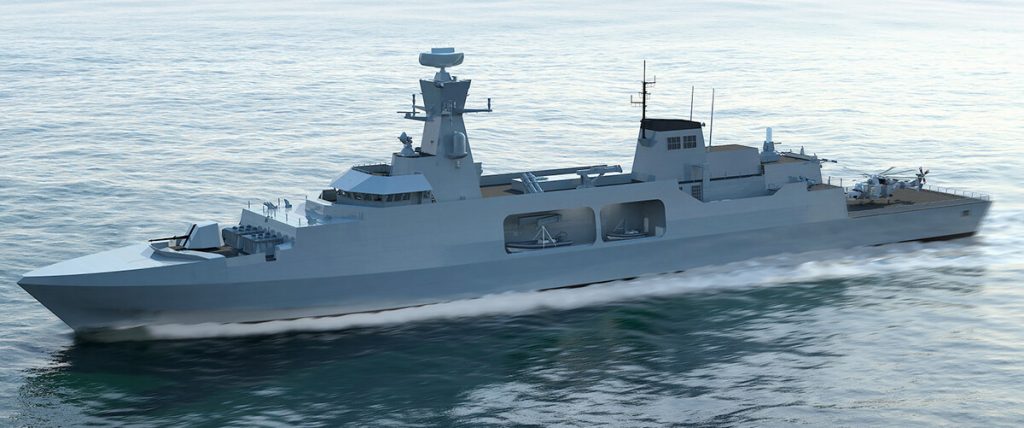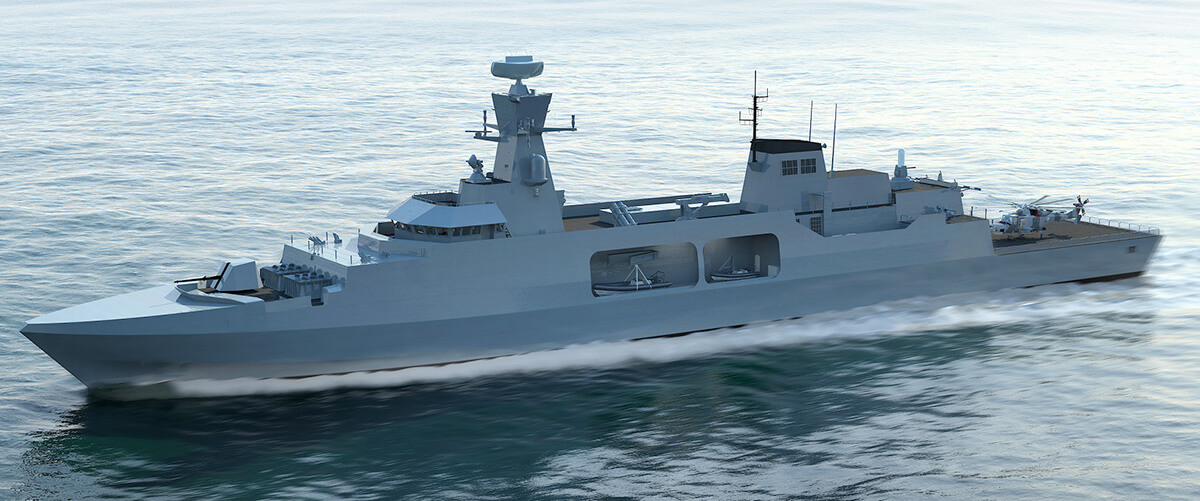
Progress is being made to boost the number of frigates in the British Royal Navy, with the Babcock International-led consortium which has been contracted to build a new class of warships adding Viasat, a satellite communication supplier, to its list of subcontractors.
On November 3, U.S.-based Viasat announced that it has snagged a deal to supply very high frequency satellite communications for five general-purpose frigates for the Royal Navy.
Equipped with ultrahigh-frequency SATCOM, the frigates will gain mission-critical capability which will provide the Type 31 with secure, beyond-line-of-sight, integrated voice and data services.
The deal marks the latest in a series of contracts awards by Babcock across the last couple of months.
Although the awarding of the contract comes midst challenges posed by the coronavirus-induced COVID-19 pandemic, Babcock is confident that the program will be on schedule.
The deal marks the completion of all major supply chain contracts on the Type 31, including the MTU main engines and diesel generators, Thales Tacticos-based combat management system; propeller shaft lines and MAN Energy Solutions propellers; Renk main reduction gearboxes; and Raytheon Anschutz’s warship-integrated navigation and bridge system.
Babcock Team 31 comprising of Babcock, BMT, OMT, Fraser Nash, and Thales will commence the construction of the first 6,000-ton warship in 2021, with the ship set to enter into service in 2027.
Already a covered construction hall with the capacity to hold two Type 31s is progressing well at Babcock’s Rosyth shipyard in Scotland, where incidentally the Royal Navy’s 65,000-ton Queen Elizabeth-class aircraft carrier was completed.
On entering service, the new frigates will be replacing ageing Type 23 legacy models and will cost, at an average, $324 million (£250 million) per ship.
In August Babcock had stated, it had successfully completed the preliminary design review of the entire ship.
Babcock’s contractual relationship with Viasat UK, marks the second such defense deal it has secured in the last few days. Only last week it announced that it had been awarded a two-year technical innovation contract for command, control and communication support for a program known as Lelantos.





